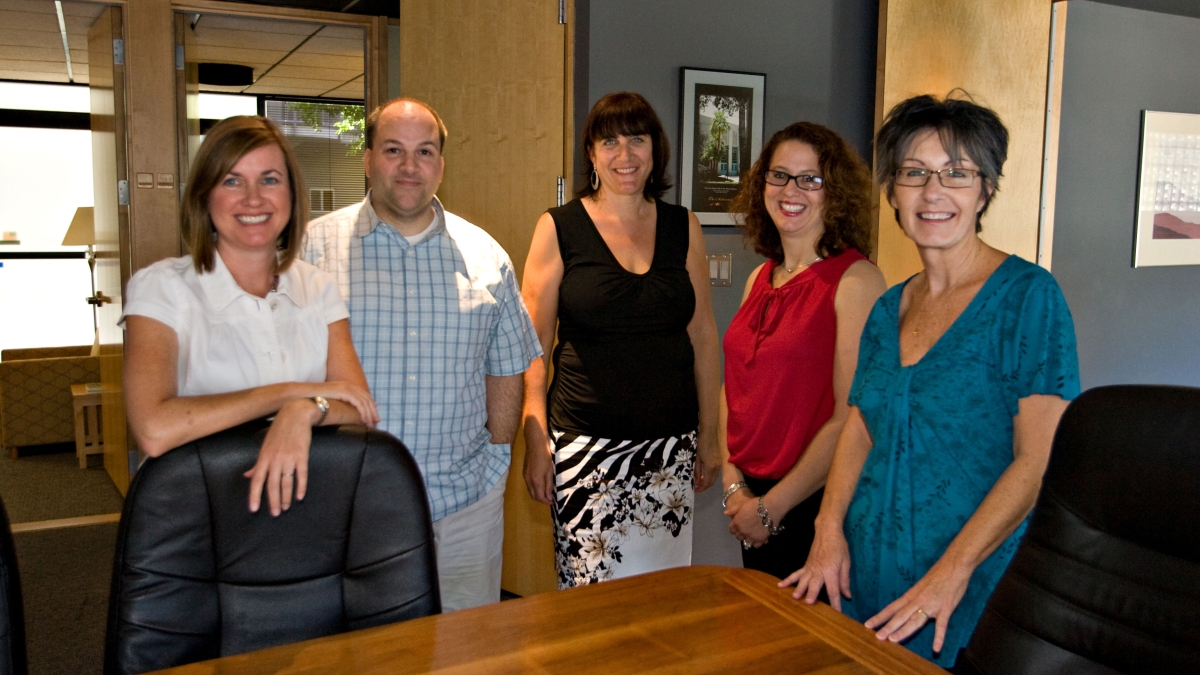Counseling services at ASU – for when life hands you lemons

Chances are, if you’ve ever hiked up “A” Mountain, or waited for the Light Rail at Veterans Way & College Ave., you have unknowingly passed by one of ASU’s best (unintentionally) kept secrets: the Employee Assistance and Wellness Office.
The office is tucked away from the roar of buses along 5th Street, where it is situated unassumingly in the northwest corner of the University Towers building, in Suite 101.
Populated by an experienced staff of medical professionals, the EAO’s sole purpose is to promote and maintain the mental and physical health of ASU’s valued faculty and staff. This means you. The services EAO provides are wide-ranging and always free of charge to all benefits-eligible employees and their spouses, dependents and household members.
The office has been assisting ASU employees and their families for 28 years, since first opening its doors in July of 1984, after being converted from a pizza parlor to the modern office space it is now.
At once charming and welcoming, the first thing you notice when you walk through the door – besides the smiling face of receptionist Robin Cook – is a distinct sense of calm and ease. Despite its small size, the space manages to accommodate a lobby area, a large conference room, a wellness office and four individual counseling offices.
The four counseling offices are inhabited by Jillian McManus, EAO director; Suzanne Jacobs, senior counselor; and fellow counselors Leonard Nasca and Korah Hoffman.
Each office is similarly furnished with cushy sofas and frosted glass doors, which serve as both a private exit and an aperture for letting in some restorative daylight.
As stated on their website, “The Employee Assistance Office uses a brief model of intervention (one to five sessions) to assist employees and their family members in addressing a variety of issues that may affect their general well-being, productivity and relationships.”
Most often, McManus says, it’s the regular life stressors that bring people into their office, and she wants ASU employees to know that a person doesn’t need to be suffering from a debilitating mental illness to benefit from counseling. According to the staff, the most common issues they deal with on a day-to-day basis are anxiety and depression, interpersonal relationships – both personal and professional – and stress.
But Jacobs urges, “There is no issue that’s too small or too big that we can’t help with.”
The EAO is partnered with Banner Health, which provides the office with a psychiatric resident once a week who is able to prescribe medication when needed. If a patient would like to continue with more sessions, after the initial one-to-five, the EAO is equipped to refer individuals to support groups or doctors within their network.
The office is open from 8 a.m. to 5 p.m., Monday through Friday, and though they do accept walk-ins, anyone interested can always call ahead to schedule an appointment and get answers to any questions they may have.
The counseling services are 100 percent confidential and are available on all campuses.
Besides counseling services, the EAO also maintains a wellness office, run by Elizabeth Badalamenti, a community health nurse, who coordinates campus wellness screenings and flu-shots in addition to scheduling nutrition, wellness and exercise classes every Tuesday, Wednesday and Thursday, from noon to 1 p.m., at the Memorial Union. Information on classes offered at other campuses can be found here.
Badalamenti advocates that in order to be mentally well, you need to also be physically well. “Mind, body and spirit are all related,” she says. "Keeping them in balance ensures that a person feels their best and is most productive.”
Perhaps the most important thing to know about the Employee Assistance Office is that the staff there really does care. As Jacobs puts it: “Everyone has the resiliency and the strength within themselves to fix their problems, but sometimes they can lose their way. My job is to hold up a flashlight for them and help them get back on their path.”
McManus echoes that sentiment. “I love what I do. I believe that people innately have the power to heal themselves and sometimes they just need an objective viewpoint to help discover their own inner strength; witnessing people heal themselves is truly inspirational.”